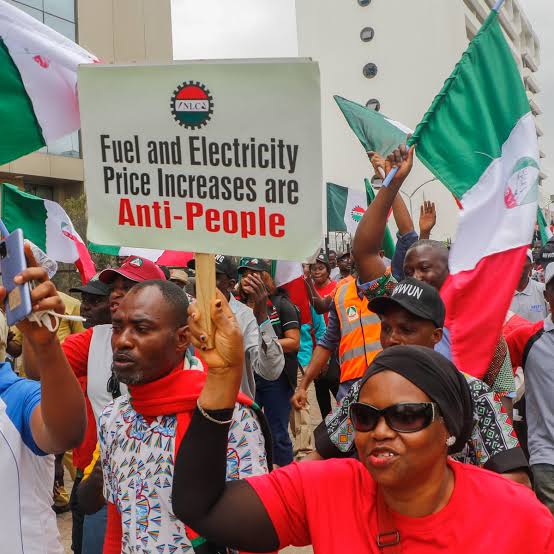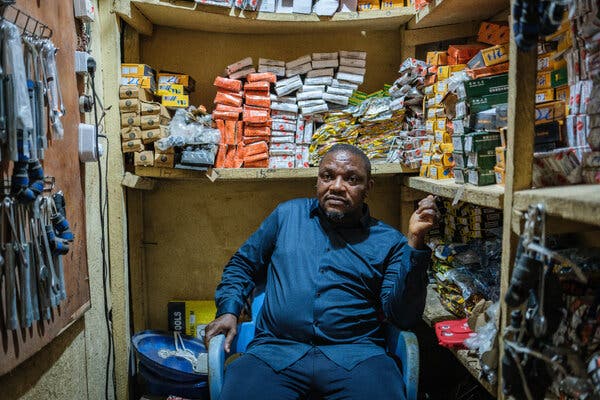By Marcel Okeke
In the name of reforms, the Nigerian economy has been taken through all manner of ‘trial-and-error’ initiatives in the past two years of the President Bola Ahmed Tinubu administration. While the Federal Government has kept battling the damaging effects of the numerous unintended consequences of those reforms, many of its agencies have keyed into the ‘reform-mania’—unwittingly unleashing even more havoc in the economy. Recent policies and initiatives being undertaken by the Nigeria Customs Service (NCS) most aptly typify such harmful reforms being churned out by some ministries, departments and agencies (MDAs) of the Federal Government. Specifically, some of the NCS’ initiatives include the ‘B’odogwu’ policy; introduction of four per cent Free on Board (FOB) charge; and (hiked) new licensing fees—all at the same time.
Like most of the ongoing reforms of the current administration, the NCS’ B’odogwu policy seems a good initiative, but it has almost practically ground maritime business in the past one month or so. The new policy involves an indigenous platform (also known as the Unified Customs Management Systems—UCMS) meant to integrate key NCS functions.
Such functions include: declaration processing, risk management, duty calculation, permit issuance, manifest handling, and cargo tracking—all within one intelligent and centralized system. However, even after the pilot phase of the UCMS, its implementation has stalled goods clearing activities at Nigeria’s seaports; leaving over 5,000 cargoes trapped, with an estimated demurrage of over N2 trillion, according to some reports.
One of the reports says: “The disruption of port activities is caused by the persistent network glitches on the NCS’ B’odogwu digital platform, which has left manufacturers and other merchants incurring a huge loss.” This is compounded by the (re-) introduction of the four per cent FOB charge, which manufacturers lament, has effectively pushed up cost of clearing by over 200 per cent.
Besides the huge costs, the manufacturers are also worried that much of their stuck raw materials might have expired or spoilt by the time they are eventually released. Key clearing processing affected by the B’odogwu glitches include logging into the platform, registration of Form M, Pre-Arrival Assessment Reports (PAAR) generating, duty payments, and final exit clearance.
Unfortunately, the UCMS which is intended to provide unified digital platform for Customs clearance and trade facilitation has so far paralyzed cargo movement at all the ports, and the bonded terminals, with both imports and exports grinding to a halt. How soon the NCS will address the lingering challenges is yet unknown; even as that key sector of the economy remains crippled.But while the maritime sector is smarting under this NCS B’odogwu reform, a greater threat to the entire ports operations in Nigeria is the introduction of new licensing fees for clearing agents and other operators. NCS plans to put licensing fee for agents and freight forwarders at N10 million; over 20-fold increase from the existing level.
A recent NCS’ internal memo showed that customs agents and freight forwarders applying for new licenses will pay N10 million, rather than the extant N515,000. Renewal fee which used to be N251,000, would now be N4 million; importers and exporters now also need to obtain bank bonds of up to N20 million, as against the current N350,000, as a financial guarantee.Under the NCS’ new charges, license fee for bonded warehouses is hiked from N60,000 to N20 million; renewals will cost N10 million, from the current N60,000. Terminals would be required to obtain bank bonds of N500 million—which is about 900 per cent increase from the N50 million currently required.Ship chandlers currently paying N515 for licenses, will now have to pay a new fee of N2 million. Renewal of their licenses will cost half of the new fee, at N1million, and bank bond requirements are also hiked, from N350,000 to N2 million.
Justifying the proposed massive fee hikes, Customs reportedly says the review was intended to “reflect prevailing economic realities, including the value of the exchange rates, and address operational demands,” in line with Sections 103 and 107 of the Nigerian Customs Service Act 2023.
This section of the Act requires individuals who wish to transact business with the NCS to have “fulfilled all licensing requirements imposed by this Act or regulations made under this Act.”
A dispassionate consideration of the NCS’ proposed fees and charges shows they are capable of triggering off a fresh economic crisis in Nigeria. With the proposed outlandish fees, not only are millions of jobs threatened, clearing charges are bound to sink not a few businesses—trying to import their raw materials and machinery.
Already, cargo volumes are down at the seaports; so, the huge additional financial pressure coming from the NCS on the struggling freight forwarding and clearing firms would obviously quicken industry contraction, paving the way for market dominance by a few financially stronger players—particularly foreigners and cartels.
The NCS new fees have the potential to undermine both trade facilitation and economic stability in the critical maritime sector, as importers will be faced with increased terminal handling charges at bonded warehouses—which are usually higher than those at the ports. The outrageously high fees for chandlers are also capable of leading to the extinction of that class of operators who, at present, are already distressed in the industry. Most ships usually come into Nigeria packed with their victuals or patronize chandlers in other African countries.
For decades, seaports in many West African countries have been edging out Nigerian ports in the volume and pace of cargo handling. The Managing Director/CEO, Nigerian Ports Authority (NPA), Abubakar Dantsoho, said at a recent function in Lagos that: “Ports in Lome, Abidjan, and Tema now handle larger vessels and higher volumes, drawing transshipment business that should rightfully flow through Lagos.”
The NPA boss said: “By every global indicator, Nigeria is the largest economy and most populous country in Africa, yet, today, Abidjan and Lome handle higher volumes than Lagos. This is the gap we must urgently close.” This noble intention notwithstanding, the NCS’ proposed fees/charges could stifle rather than drive the growth of the maritime sector in Nigeria. The truth is that over the years, the standard and quality of service at Nigerian seaports had become serious disincentives to importers and exporters: poor facilities, high costs and red tape. Many Nigerian importers and exporters, to beat these local hitches, are known to have often used the ports in Lome, Tema or Abidjan—leading to huge loss of revenues to the NPA and NCS. Concomitantly, the hitches at the Nigerian ports have led to the thriving of smuggling and resort to the use of numerous illegal routes for imports and exports.
Unfortunately, now that the NCS is about to unleash the new fees and charges, not a few operators are bound to explore whatever ways and means to escape the huge financial burden. Those who opt to absorb the costs, would ultimately transfer same to the ultimate consumers—as high prices of goods and services. All this, therefore, would act as counterpoise to the fight against the hyperinflationary trend in the country. So, even as the monetary and fiscal authorities work to harmonize strategies to rein in the raging high inflation in the land, the NCS’ new regime of outrageous fees/charges is bound to do the opposite. More imported and cost-push inflation are bound to happen. While the NCS’ fees and charges could be desirable, they are not expedient now. Therefore, for the much-vaunted stability of the Nigerian economy, let the NCS’ proposed fees and charges be taken back to the drawing board. And let the looming crisis be averted!

The author, Okeke, a practicing Economist, Business Strategist, Sustainability expert and ex-Chief Economist of Zenith Bank Plc, lives in Lekki, Lagos. He can be reached via: obioraokeke2000@yahoo.com (08033075697) SMS only




